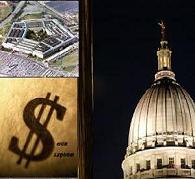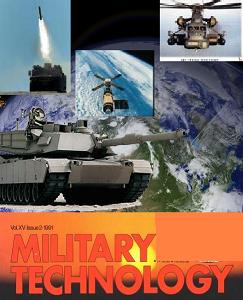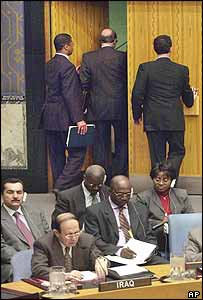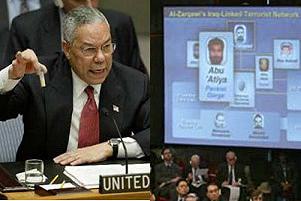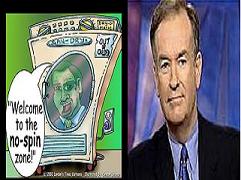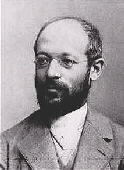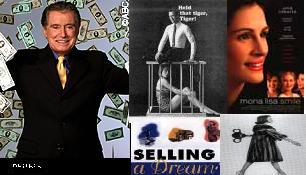
Association For The Socioeconomic Analysis Of
Development And International Conflict

Association For The Socioeconomic Analysis Of Development And International Conflict











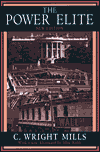
" Imperialism has generally meant the political, and if need be
the military protection of businessmen (the corporate elite) and their interests
in foreign areas. The political protection need not include the protection of
colonies; the military protection need not involve the establishment of bases
and garrisons.
But regardless of the manner of the protection extended,
imperialism by definition involves the interplay of economic, political and
military institutions and men. No event of significance can be understood
without understanding how these interests come to points of clash or of
coincidence. "The International System" of the world today cannot be
understood without understanding the changing forms of their
interplay."
(C. Wright Mills, The Causes of World War III
1960:67)
Note that the above comments by C. Wright Mills were
published almost 14 years before Immanuel Wallerstein formulated
The World
System Theory.
"We live in a world where imperialism consigns
hundreds of millions of people to lives of misery and oppression and where the
shadow of nuclear death is cast upon us all, a world where the pursuit of profit
is destroying the ecological conditions of life itself..."
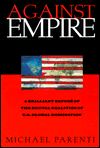
(Michael
Parenti, Against Empire 1995)






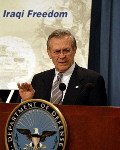





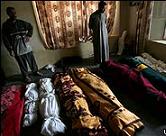
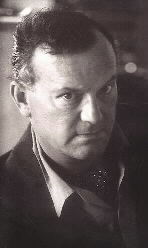
"The powers of ordinary men are circumscribed by the everyday
worlds in which they live, yet even in these rounds of job, family, and
neighborhood they often seem driven by forces they can neither understand nor
govern…The very framework of modern society confines them to projects not their
own, but from every side, such changes now press upon the men and women of the
mass society, who accordingly feel that they are without purpose in an epoch in
which they are without power…
As the means of information and power are
centralized, some men come to occupy positions in American society from which
they can look down upon…and by their decisions mightily affect, the everyday
worlds of ordinary men and women. They are not made by their jobs, (but) they
set up and breakdown jobs for thousands of others… ‘They are all what we are
not’.
The Power Elite is composed of men whose positions enable them to
transcend the ordinary environments of everyday men and women; they are in
positions to make decisions having major consequences…For they are in command of
the major hierarchies and organizations of modern society…They occupy the
strategic command posts of the social structure, in which are now centered the
effective means of the power and the wealth and the celebrity which they
enjoy.".


" During most of human history, historical change has not been
visitble to the people who were involved in it or even to those who were
enacting it. Ancient Egypt and Mesopotamia, for example endured for some four
hundred generations with but slight changes in their basic structure...it is
about eighty times as long as the six generations of United States'
existence.But now the tempo of change is so rapid, and the means of observation
so accessible, that the interplay of events and decisions seem often to be quite
historically visible, if we only look carefully from an adequate vantage
point.
When knowledgable journalists tell us that 'events not men make
the big decisions', they are echoing the theory of history as fortune, chance or
fate (mystical determinism)...


" Of course there may be corrupt men in sound institutions but
when institutions are corrupting, many of the men who live and work in them are
necessarily corrupted. In the corporate era, economic relations become
impersonal and the executive feels less personal responsibility. Within the
corporate world of business, war-making and politics, the private conscience is
attunated and the higher immorality is institutionalized. It is not
merely a question of a corrupt administration in corporation or army or state,
it is a feature of the corporate rich,...deeply interwined with the politics of
the military state"
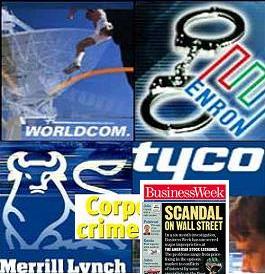
 FORBES CORPORATE SCANDAL SHEET 2002
FORBES CORPORATE SCANDAL SHEET 2002 TOP 100 CORPORATE CRIMINALS
1990S
TOP 100 CORPORATE CRIMINALS
1990S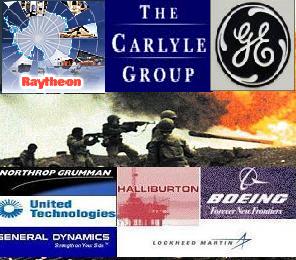

“It is in the continual preparation for war that the power
elite now finds the major basis for the furthering of the several and coinciding
interests of its members…The expectation of war solves many problems of the
"crackpot realists"; it also confronts them with many new problems. Yet
these, the problems of war, often seem easier to handle. They are out in the
open: to produce more, to plan how to kill more of the enemy, to move materials
thousands of miles...war also enables men to solve the problems of the economic
cycle without resort to political policies that are distasteful to many
politicians...The terms of their long term solutions, under conditions of peace,
are hard for the capitalist elite to face…

